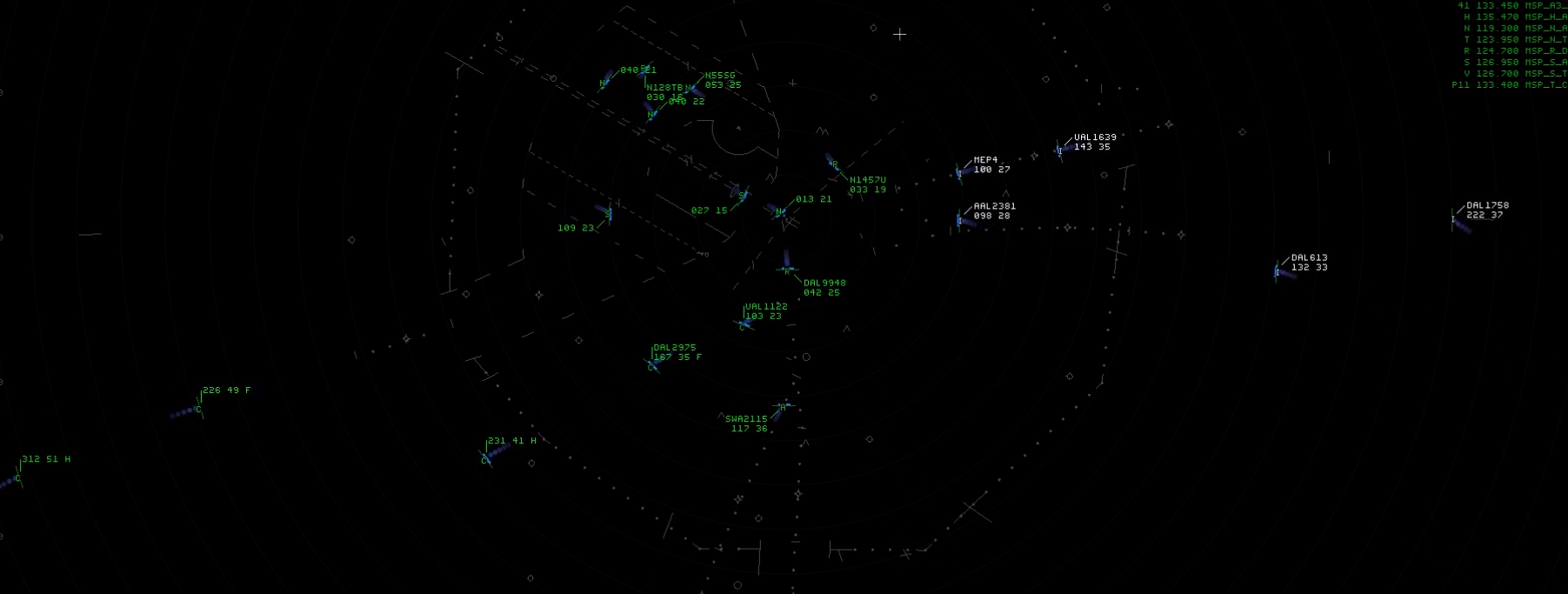My two cents:
@veselko (and @Tim S ) I'm not sure why you find 20-year-old instructors with no real ATC experience a problem..? Good luck finding a veteran real-life controller who is willing to spend time on (virtual) air traffic control networks when he/she isn't working. The training staff is (almost) entirely made up out of volunteers who got (almost) all of their knowledge from previous instructors. You don't need real world experience to control (or fly) on online networks.
[Waiting an entire year for (one?) training session seems a bit excessive.]
@Tim S
Length of time to go from student to controller is far too long, typically 12 to 18 months, and even as long as 2 years in certain ARTCCs.
All hands on training has to be scheduled with a training controller, and there are no self study tracks that allow on the job opportunities without meeting with a training controller. This results in unnecessary training delays, and causes trainees to lose interest.
Very little, if any, opportunity to control any meaningful airspace during training. You become a ground or tower controller, and you can control a small airport that sees 2 aircraft in 6 hours. This is a result of lack of knowledge of how humans learn, and how to put learned material into practice.
I'm not sure how things go at your ARTCC, but it takes time to work through the ratings. If everyone could get their C1 rating in less than a month, the quality of ATC would rapidly degrade; there's a reason why it takes some time to get through your ratings. I feel like one year is a very reasonable time to get from S1 to C1. Moreover, there actually are self-study tracks, most ARTCC's will give students a SMT (self monitored training) certificate once they've shown a reasonable level of proficiency.
If newbie controllers would work major, class B airports during training sessions, things might (and often) go wrong, causing an unpleasant experience for the pilots. We want students to have a good grasp at what exactly they're doing, and what is expected from them before they're allowed to control larger airports.
Little understanding of the human learning process by the people creating training material, and especially by the very young people that are the majority of VATSIM trainers in any given ARTCC. Most 16 and 17 year olds do not have the ability to teach a subject that they themselves only have a rudimentary grasp on.
All instructors hold at least a C1-rating which means that they do understand the subject they're teaching. Age shouldn't matter and even if it did, good luck filling a training team with only 30+ year olds because they usually don't have the spare time like younger folks have, it's impossible to do on VATSIM and I am willing to say it's impossible to do on POSCON. This would only cause longer waiting times.
The airspace in real life is complicated for a real air traffic controller that works the system as their full time job. VATSIM has slowly moved to try and replicate the real airspace system, to the point where most VATSIM center controllers do not fully understand it, especially when it comes to LOA's, VFR operations, and most low use SOP's.
I'm not sure what you're trying to say; first you say that the real airspace system is complicated and air traffic controlling is a full-time job, but then you're surprised that center controllers do not fully understand their entire airspace? Obviously they have to look things up from time to time, especially when it's a low use SOP or special restricted airspace. Mind you, it's VATSIM and we're not real world controllers. All the center controllers I've met knew perfectly well how to handle VFR operations (whatever that may be).
They knew about ATC and the airspace system from being involved in VATSIM, but there was no real world connection.
Once again, if you'd require controllers to have some sort of real world connection or educational background, there would be no controllers left. More controllers is exactly what you're advocating for.
Comparing air traffic controlling to Fortnite would be comparing apples to oranges, not fair. There's no experience required in a game like Fortnite, but pilots do except some level of experience when you're providing them air traffic control services.
Training just takes some time. I got my S1 rating within 3 training sessions. My ARTCC recommends controllers to wait at least 30 to 40 hours before continuing training, to make sure there is proficiency at the said position before moving on. It takes even more time to get familiar with your airspace when working TRACON or en-route positions. You would surprised to hear how many people fail OTS exams because they're not proficient at a lower position.
In conclusion, I don't think POSCON should blatantly copy the training programs from other networks, and there for sure is room for improvement, but it should not compromise the quality of the ATC or realism.

